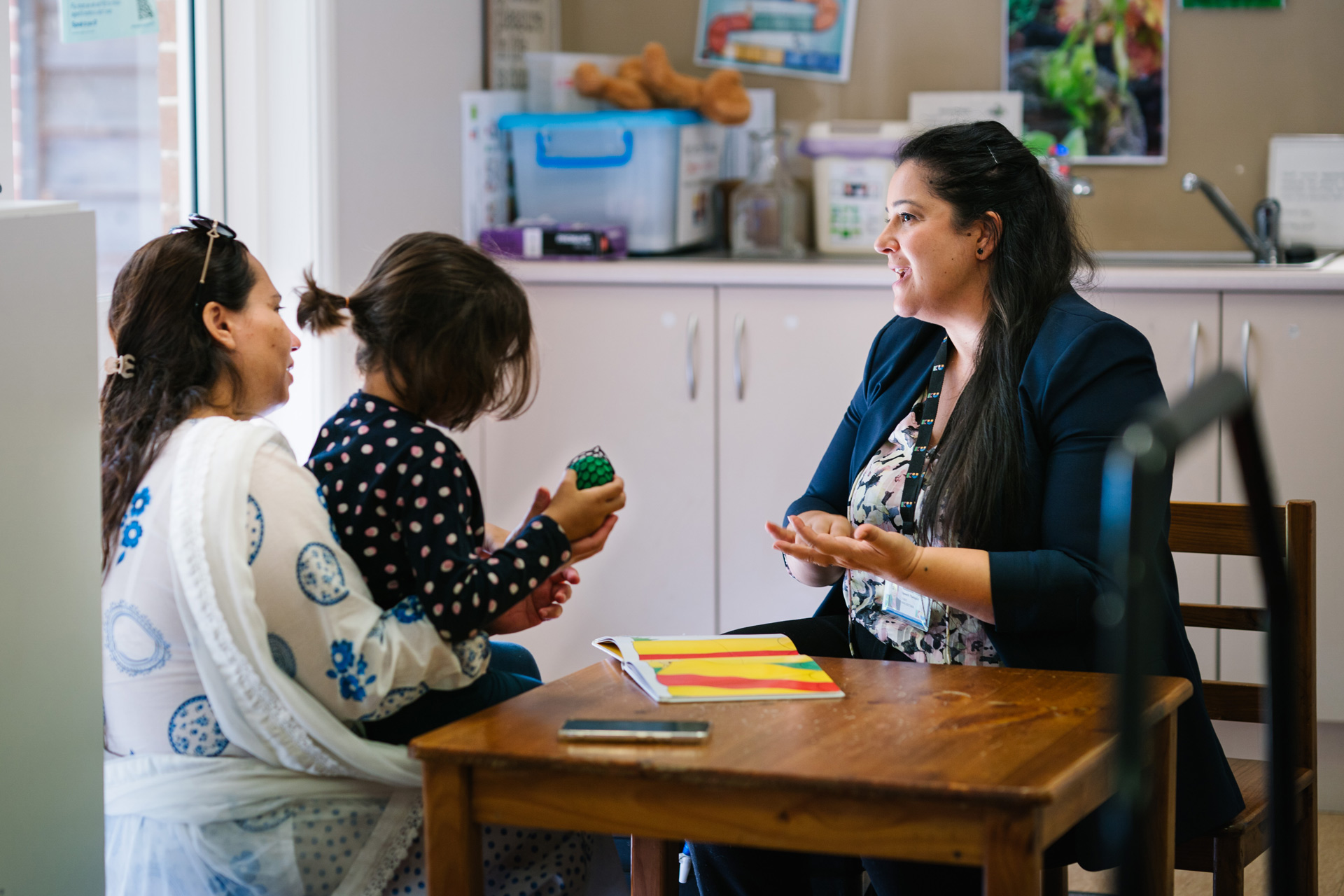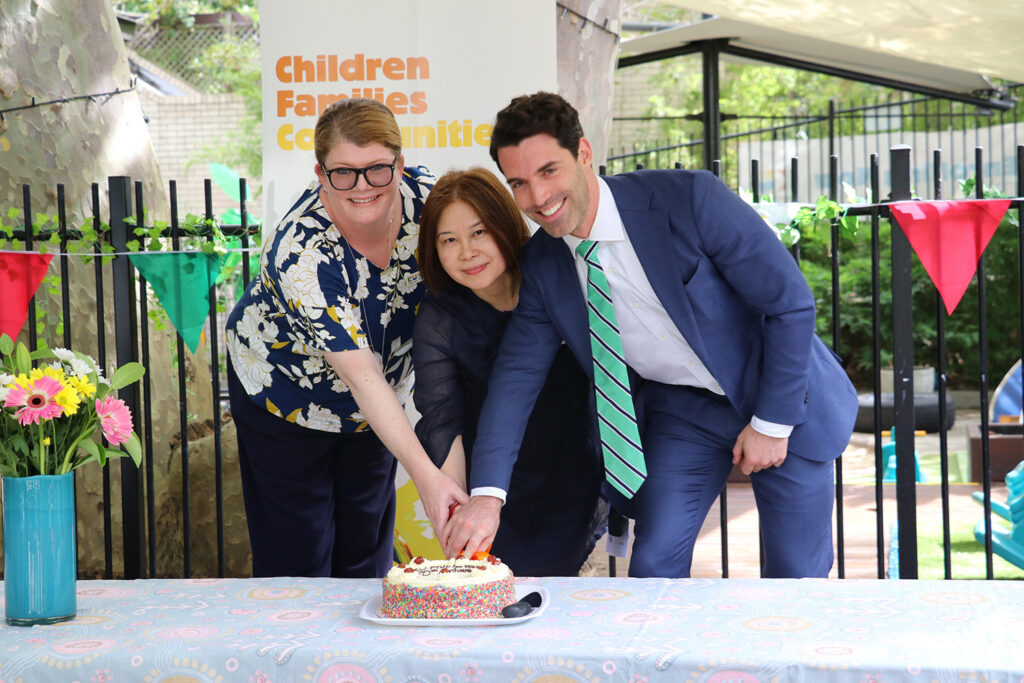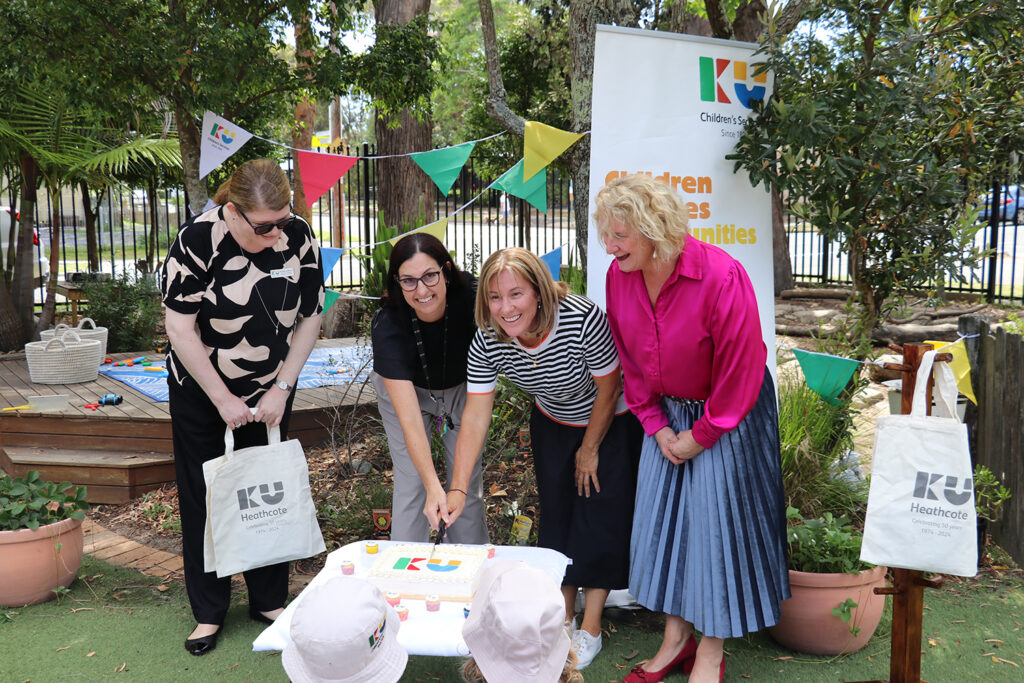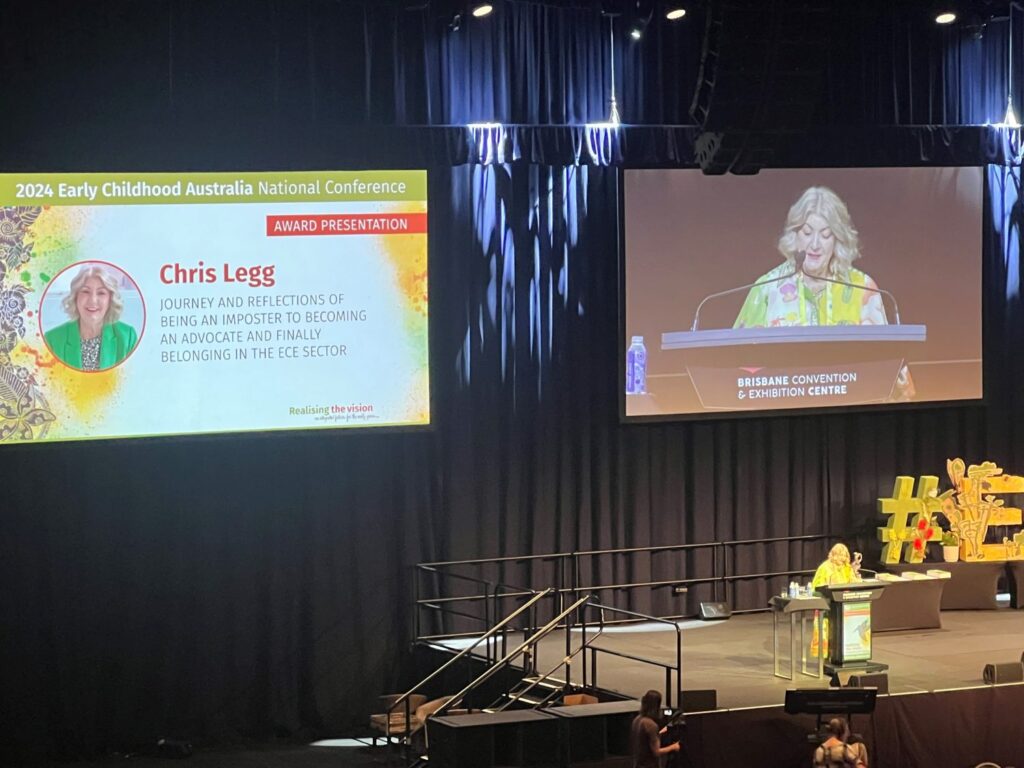
Is this typical? What concerns a speech pathologist?
Speech pathologist Rebecca Manning gives us wonderful insights about children’s speech and communication and what to look out for.
By Rebecca Manning, KU Speech Pathologist
May 2021
Having the privilege of watching a child learn to communicate is a wonderous thing. From first smiles, coos and laughs; to boisterous babbling; and on to first words, it is a truly amazing thing to watch. When children look at us and smile, point to things they want to show us, or even when they settle as we give them comfort, they are showing us that they see us as part of their world.
Connection and communication are closely linked in children’s development. Early communication such as eye contact, smiling and copying facial expressions typically happen during times when we are close to a baby, face-to-face and engaging in back-and-forth communication. These are also the prime conditions to foster connection with a child. When we develop that connection with a baby or child, they feel comfortable to communicate their needs, thoughts and ideas with us.
As early childhood professionals, most of us will have met a baby or child in our career who, despite our best efforts to connect and communicate, has not responded to our attempts in the way we expected. It may be a baby who seemed more interested in looking at the lights on the ceiling than our face when we spoke to them, a toddler who looks at our hand rather than what we are pointing at to show them, or a child who responds to our question with something unrelated.
Speech pathologists have several things that will usually start our alarm bells ringing. It’s not usually the child who has a stutter or a lisp who worries us, although they will probably still need our help. It’s not even the toddler who delights in our company and wants to show us everything that interests them but is not using many words yet. Although that toddler might still need some speech therapy to increase her language skills, what she has that sets our mind at ease is the desire to connect and communicate. It’s when babies and children seem to lack the drive and desire to connect with those close to them, including their parents and educators, that speech pathologists become very concerned.
This may look different for different children and across different ages, but speech pathologists will typically be concerned by babies or children who:
- Don’t seem interested in the people around them
- Are more interested in objects such as toys, lights or fans, than people
- Don’t look at people who are talking to them
- Don’t smile at people who are playing, talking or smiling at them
- Don’t react to sounds in the environment such as sirens, noise-making toys or instruments
- Don’t look at what you are pointing to (by around 12 months)
- Don’t seem motivated to communicate, or to show you things they are interested in
- Don’t use gestures such as pointing, showing, waving and reaching for “up” (by around 12 months)
- Aren’t copying actions such as banging toys or clapping, and copying facial expressions (by around 12 months)
- Aren’t using any words by 15 months, 20 words by 18 months, and 50 words by 2 years
- Have a limited play repertoire and in repetitive play such as stacking or lining up toys, and do not engage in pretend play
- Are resistant to suggestions from others to extend play ideas
- Have difficulty entering play with other children (for preschool aged children)
- Respond to questions with an unrelated answer, or have difficulty taking a few turns on a shared topic in conversation (for preschool aged children)
When children are having difficulties learning these skills, it shows us that they need help sooner rather than later – help with “tuning in” to others so that they can build connections with people close to them and begin to share their feelings, needs and thoughts with us. Speech pathologists can assess and provide support for babies from around six months of age, even younger in some cases. If you have concerns about a child’s communication development, even if they are very young, we always recommend contacting a speech pathologist rather than “waiting and seeing”. Providing children with opportunities for early intervention is key in giving them the best outcome for their communication development. Educators and other early childhood professionals are often the first to feel that a child may be experiencing difficulties with their development compared to their peers. It is important that we trust our knowledge and experience to help us support children and families in accessing the support the child may need.
In addition to the reasons discussed above, children may benefit from speech pathology support for many different reasons. The following list contains common reasons that children may be referred for a speech pathology assessment:
- Difficulty answering questions that same-age peers can answer
- Difficulty following directions that same-age peers can follow
- A hoarse or very strained voice (any age)
- Children aged 18 months or older with no words
- Children aged two or older with less than 50 words
- Stuttering
- Speech that is difficult to understand (for children 3 years and over)
Want to know more?
To learn more about speech development, working with allied health professionals and the full range of KU Learning and Development courses and events, click the below button.



